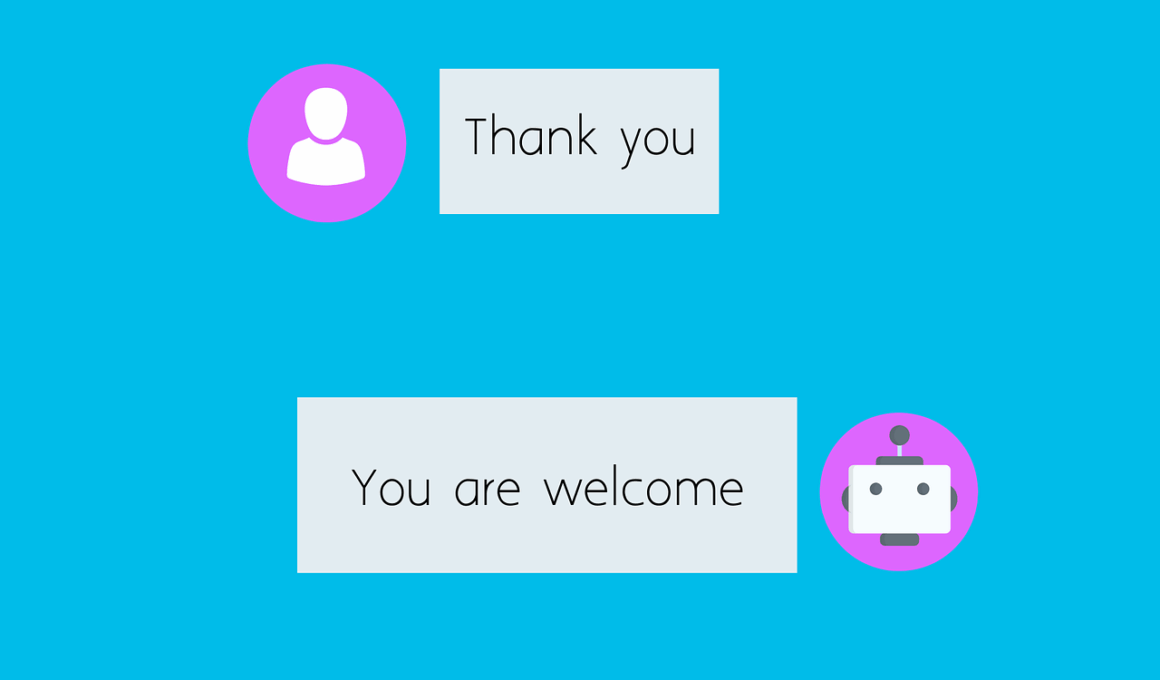Utilizing Facebook Page Messenger for Better Customer Service
In today’s digitally driven environment, effective customer service through social media has become essential for brands. Facebook Page Messenger is an underutilized tool that can significantly improve customer interactions. By integrating Messenger into your customer service strategy, you can offer immediate responses, addressing customer inquiries in real-time. This leads to enhanced customer satisfaction, ultimately translating into increased brand loyalty. In addition, utilizing auto-replies for frequently asked questions can streamline your operations, allowing agents to focus on more complex queries that require human intervention. Reports show that brands using Messenger experience faster response times, which can be a pivotal differentiator in competitive markets. Leveraging Messenger can also provide your business with valuable insights into customer preferences and behaviors. Through these insights, businesses can adjust their communication strategies to better suit customer needs. All these factors contribute to creating a seamless customer experience tailored to the expectations of modern consumers who value prompt responses. Ultimately, a well-optimized Messenger strategy can enhance your Facebook Page’s overall effectiveness in nurturing customer relationships. This ensures that your social media efforts resonate and establish trust among your audience.
To optimize your Facebook Page Messenger effectively, begin by configuring your settings appropriately. Ensure that your auto-responses cover basic customer queries, such as business hours, return policies, and service details. Setting up Messenger greetings can further enhance user engagement. These greetings welcome users, immediately making them feel acknowledged and valued. Furthermore, businesses should consider incorporating quick reply options for common questions. This feature significantly improves user experience by providing instant answers, allowing customers to navigate easily. Additionally, utilizing personalized messages based on user interactions can foster a closer connection with your audience. Investing in chatbot technology can also enhance the efficiency of your customer service team. This allows you to manage inquiries outside standard working hours while ensuring that responses remain consistent and relevant. Don’t forget to promote your Messenger availability across your other social media channels to drive engagement. Making customers aware of your Messenger feature encourages them to reach out with their problems swiftly. Track your Messenger statistics to understand better the types of inquiries received, which can help tailor your services and responses more effectively over time.
Benefits of Using Messenger for Customer Queries
The benefits of using Facebook Messenger extend well beyond immediate customer service inquiries. One essential advantage is the creation of a manageable and organized communication stream. Messages are archived, allowing easy access to previous inquiries and maintaining a comprehensive record of customer interactions. These records can be analyzed to identify trends and improve future customer engagement strategies. Furthermore, Facebook Messenger enables businesses to integrate rich media into conversations, allowing the sharing of images, videos, and links directly with customers. This functionality transforms interactions into more engaging and informative exchanges, paving the way for more dynamic communication. By including promotional content and links, brands can keep customers informed about their latest offerings or events. Messenger also opens opportunities for proactive customer service. Customers can receive service updates, notifications, and important reminders, improving user satisfaction. Additionally, businesses can leverage Messenger to encourage customer feedback and reviews, further enhancing community trust. Continuous dialogue and responsiveness foster brand relationship development. Therefore, brands that capitalize on Facebook Messenger develop stronger, long-lasting relationships with their clientele.
As you design your messaging strategy, consider utilizing data analytics to understand user engagement patterns. Facebook provides several tools to measure interactions and customer satisfaction levels. Key performance indicators, such as response time and user engagement rate, can help assess the effectiveness of your Messenger strategy. Regular assessments of these metrics allow you to adapt your approach and refine your messaging accordingly. It’s beneficial to segment your customer base and tailor your messaging to fit each segment. For instance, provide industry-specific information relevant to individual consumers’ interests. By personalizing communications, you enhance the customer experience, making users feel valued. Additionally, integrating Messenger with other platforms, such as email marketing systems or CRM software, can streamline your operations. This integration creates a unified customer view that reinforces comprehensive outreach efforts. Regularly updating your audiences about product launches, promotions, or important company news is crucial. Using Messenger to share exclusive content can attract and retain user interest. Remember, customer experience is paramount, and every interaction shapes their perception of your brand. Aim to foster a community within your audience base where loyalty and advocacy can thrive continuously.
Integrating Messenger with Facebook Ads
Integrating Messenger with your Facebook Ads can lead to enhanced engagement rates and qualified leads. Utilize call-to-action buttons in your ads that direct users to Messenger, encouraging them to start conversations rather than simply visiting a website. This direct interaction can yield higher conversion rates, as users who engage through Messenger often have more specific queries leading to quicker decision-making. Implementing targeted ads based on user interests or demographics can further bolster engagement. The beauty of Messenger lies in its ability to foster two-way communication, allowing you to establish an authentic connection with potential customers. Furthermore, by using Messenger as a platform for lead generation, businesses can ask qualifying questions that guide prospects through the customer journey efficiently. This form of personalized interaction can significantly increase the likelihood of conversion. Always ensure to follow up promptly with users who engage with your ads, as timely responses are critical to closing potential sales. Tracking the success of Messenger-linked ads provides insights into consumer behavior, allowing for ongoing refinement of both ad and engagement strategies, ultimately contributing to business growth.
Another crucial aspect to consider is maintaining a professional yet approachable tone in your Messenger communications. How you interact with customers sets the stage for their overall experience with your brand. Establishing a friendly persona can simplify complex dialogues and make your customers more likely to engage in conversations openly. Training your team in effective communication techniques can also enhance service quality. Provide them with clear guidelines on how to respond to different customer situations while ensuring they can inject their personality into replies. This creates a harmonious balance between professionalism and approachability. Encourage agents to use emojis, gifs, or images when appropriate to humanize interactions and make conversations feel more relatable. Additionally, let your audience know that customer support through Messenger is readily available, fostering trust and security. Regularly evaluate conversations to understand customer feedback and sentiment better. Stay updated on emerging trends and customer preferences for ongoing improvement. Strong customer service does not only resolve issues; it helps build long-term relationships, with Messenger serving as a prominent communication channel.
Conclusion: Maximizing Messenger’s Potential
In conclusion, maximizing the potential of Facebook Page Messenger can significantly impact your customer service strategy. By actively engaging with customers and addressing their needs, you cultivate positive experiences that lead to brand loyalty. Ensure your Facebook Page utilizes auto-responses and personalized engagement techniques to create lasting impressions. Regular assessment and adaptation of strategies based on customer interactions are vital to staying relevant and effective. Leveraging Messenger analytics for insights and continually refining your approach keeps you ahead of the competition. Create a community around your brand where customer input is welcomed and valued encourages ongoing communication while building trust. Always communicate transparently with your audience, presenting your brand as accessible and approachable. Brands that succeed in these areas will likely thrive as their customers feel heard and supported. Don’t underestimate the power of Messenger; it’s not just a tool but a vital channel for building relationships with your audience. By investing in this medium, you’re investing in the long-term success of your business.
By implementing powerful communication and promptly addressing inquiries, your Facebook Page can enhance user satisfaction, leading to a more loyal customer base. Keep your messaging consistent, engaging, and valuable to attract and retain customers. Your approach to customer service through Messenger will reflect your brand’s commitment and willingness to innovate. Remember, the success of your Facebook Page relies on how well you connect with your audience. Embrace this opportunity to engage effectively and witness the transformation within your customer service dynamics.





